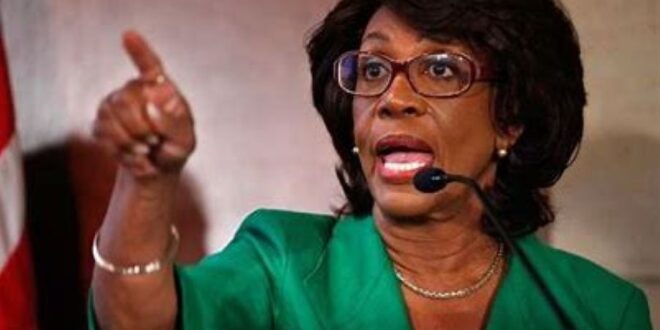Rep. Maxine Waters (D-CA), the Ranking Member of the House Financial Services Committee, has announced her intention to object to an upcoming congressional hearing focused on cryptocurrency policy, signaling continued partisan division over how the U.S. should regulate the digital asset industry.
The hearing, scheduled by the Republican-led committee, is expected to explore various legislative proposals aimed at establishing a clearer regulatory framework for cryptocurrencies, particularly regarding market structure and stablecoin oversight. However, Waters has raised concerns about the direction and substance of the hearing, arguing that it prioritizes industry interests over consumer protections.
In a statement, Waters criticized what she described as a “rushed” effort to push through crypto-friendly legislation without adequate safeguards in place to prevent fraud, manipulation, and systemic risk. She pointed to the collapse of high-profile firms such as FTX and Celsius as evidence that the industry remains volatile and in need of stronger regulatory guardrails.
Waters has long advocated for a cautious approach to crypto regulation, often emphasizing the need for coordinated oversight involving the Securities and Exchange Commission (SEC) and the Commodity Futures Trading Commission (CFTC), along with banking regulators. Her opposition to the hearing highlights a persistent rift between Democratic lawmakers—many of whom call for strict enforcement—and Republicans who argue that overregulation could stifle innovation and push the industry overseas.
The dispute adds further uncertainty to the legislative path for digital asset regulation, which remains fragmented across multiple bills and agencies. While bipartisan consensus has emerged on some issues, such as anti-money laundering rules, deep divisions persist over how to classify and oversee different types of digital assets.
As Congress enters a critical period for shaping future crypto policy, Waters’ objection could stall momentum and reignite debates over the balance between innovation and investor protection.
 Business Sandesh Indian Newspaper | Articles | Opinion Pieces | Research Studies | Findings & News | Sandesh News
Business Sandesh Indian Newspaper | Articles | Opinion Pieces | Research Studies | Findings & News | Sandesh News



